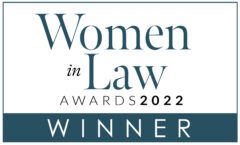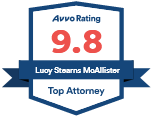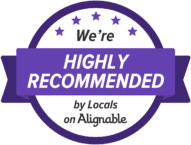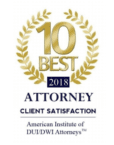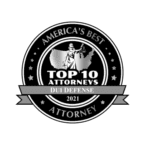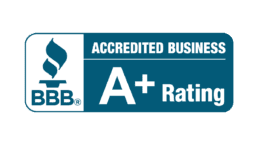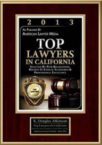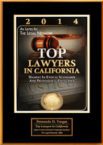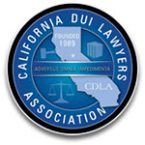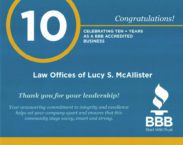If you are a California pharmacist, you know the risks of losing your professional license as a pharmacist for writing prescriptions to service your own or someone else’s addictions and other instances of pharmacist misconduct (unprofessional conduct).
Anyone can complain to the California State Board of Pharmacy and an investigation can be launched by the Board with only a written online complaint. No actual proof is needed to start the state’s investigation against you. And, with the internet, the capabilities of a Pharmacy Board to track pharmacists’ prescriptions has expanded exponentially. Board investigators can search all scripts by prescription name or number, prescription type and prescriber name.
Section 4301 of the California Code states:
The board shall take action against any holder of a license who is guilty of unprofessional conduct or whose license has been procured by fraud or misrepresentation or issued by mistake.
Unprofessional conduct shall include, but is not limited to, any of the following:
(a) Gross immorality.
(b) Incompetence.
(c) Gross negligence.
(d) The clearly excessive furnishing of controlled substances in violation of subdivision (a) of Section 11153 of the Health and Safety Code.
(e) The clearly excessive furnishing of controlled substances in violation of subdivision (a) of Section 11153.5 of the Health and Safety Code. Factors to be considered in determining whether the furnishing of controlled substances is clearly excessive shall include, but not be limited to, the amount of controlled substances furnished, the previous ordering pattern of the customer (including size and frequency of orders), the type and size of the customer, and where and to whom the customer distributes its product.
(f) The commission of any act involving moral turpitude, dishonesty, fraud, deceit, or corruption, whether the act is committed in the course of relations as a licensee or otherwise, and whether the act is a felony or misdemeanor or not.
(g) Knowingly making or signing any certificate or other document that falsely represents the existence or nonexistence of a state of facts.
(h) The administering to oneself, of any controlled substance, or the use of any dangerous drug or of alcoholic beverages to the extent or in a manner as to be dangerous or injurious to oneself, to a person holding a license under this chapter, or to any other person or to the public, or to the extent that the use impairs the ability of the person to conduct with safety to the public the practice authorized by the license.
(i) Except as otherwise authorized by law, knowingly selling, furnishing, giving away, or administering, or offering to sell, furnish, give away, or administer, any controlled substance to an addict.
(j) The violation of any of the statutes of this state, of any other state, or of the United States regulating controlled substances and dangerous drugs.
(k) The conviction of more than one misdemeanor or any felony involving the use, consumption, or self-administration of any dangerous drug or alcoholic beverage, or any combination of those substances.
(l) The conviction of a crime substantially related to the qualifications, functions, and duties of a licensee under this chapter. The record of conviction of a violation of Chapter 13 (commencing with Section 801) of Title 21 of the United States Code regulating controlled substances or of a violation of the statutes of this state regulating controlled substances or dangerous drugs shall be conclusive evidence of unprofessional conduct. In all other cases, the record of conviction shall be conclusive evidence only of the fact that the conviction occurred. The board may inquire into the circumstances surrounding the commission of the crime, in order to fix the degree of discipline or, in the case of a conviction not involving controlled substances or dangerous drugs, to determine if the conviction is of an offense substantially related to the qualifications, functions, and duties of a licensee under this chapter. A plea or verdict of guilty or a conviction following a plea of nolo contendere is deemed to be a conviction within the meaning of this provision. The board may take action when the time for appeal has elapsed, or the judgment of conviction has been affirmed on appeal or when an order granting probation is made suspending the imposition of sentence, irrespective of a subsequent order under Section 1203.4 of the Penal Code allowing the person to withdraw his or her plea of guilty and to enter a plea of not guilty, or setting aside the verdict of guilty, or dismissing the accusation, information, or indictment.
(m) The cash compromise of a charge of violation of Chapter 13 (commencing with Section 801) of Title 21 of the United States Code regulating controlled substances or of Chapter 7 (commencing with Section 14000) of Part 3 of Division 9 of the Welfare and Institutions Code relating to the Medi-Cal program. The record of the compromise is conclusive evidence of unprofessional conduct.
(n) The revocation, suspension, or other discipline by another state of a license to practice pharmacy, operate a pharmacy, or do any other act for which a license is required by this chapter.
(o) Violating or attempting to violate, directly or indirectly, or assisting in or abetting the violation of or conspiring to violate any provision or term of this chapter or of the applicable federal and state laws and regulations governing pharmacy, including regulations established by the board or by any other state or federal regulatory agency.
(p) Actions or conduct that would have warranted denial of a license.
(q) Engaging in any conduct that subverts or attempts to subvert an investigation of the board.
(r) The selling, trading, transferring, or furnishing of drugs obtained pursuant to Section 256b of Title 42 of the United States Code to any person a licensee knows or reasonably should have known, not to be a patient of a covered entity, as defined in paragraph (4) of subsection (a) of Section 256b of Title 42 of the United States Code.
(s) The clearly excessive furnishing of dangerous drugs by a wholesaler to a pharmacy that primarily or solely dispenses prescription drugs to patients of long-term care facilities. Factors to be considered in determining whether the furnishing of dangerous drugs is clearly excessive shall include, but not be limited to, the amount of dangerous drugs furnished to a pharmacy that primarily or solely dispenses prescription drugs to patients of long-term care facilities, the previous ordering pattern of the pharmacy, and the general patient population to whom the pharmacy distributes the dangerous drugs. That a wholesaler has established, and employs, a tracking system that complies with the requirements of subdivision (b) of Section 4164 shall be considered in determining whether there has been a violation of this subdivision. This provision shall not be interpreted to require a wholesaler to obtain personal medical information or be authorized to permit a wholesaler to have access to personal medical information except as otherwise authorized by Section 56 and following of the Civil Code. For purposes of this section, long-term care facility shall have the same meaning given the term in Section 1418 of the Health and Safety Code.
Consumer complaints can also instigate an accusation or investigation for misconduct by a pharmacist including (but not limited to) instances where:
- The pharmacist fails to counsel you about how to take a new prescription (or a prescription with changed instructions) and its possible side effects
- A non-pharmacist employee counsels you regarding your prescription
- A pharmacist is not present, and your prescription is filled by a non-pharmacist
- A pharmacist fails to maintain the confidentiality of your prescription information
- A pharmacist appears unable to function safely (due to alcohol or drug abuse)
- The pharmacy is dirty, cluttered, or looks unsanitary
- A pharmacist fails to assist you in obtaining a prescribed drug or device from another pharmacy, when the drug or device is out of stock
- A pharmacist fails to assist you in obtaining a prescribed drug or device from another pharmacy, when the pharmacist refuses to fill the prescription for ethical, moral, or religious reasons
Examples of prescription error violations include (but are not limited to) instances where: ·
- Incorrect information is entered on the label of the prescription container
- A prescription is dispensed with the wrong drug or wrong dosage
- A medication is refilled without proper authorization from the prescribing physician
- A generic drug is substituted for a brand name drug, without informing the patient of the substitution
- A prescription is filled using drugs whose expiration date has passed
Complaints to the Pharmacy Board and violations of Section 4301 can result in a disciplinary action against a licensee from a simple reprimand to citations and/or suspension or revocation of your right to practice as a pharmacist, your right to operate a pharmacy and your professional pharmacy license. Formal disciplinary actions are a matter of public record and are posted on the board’s website, as are the names of licensees, license numbers, address of record, the date the original license was issued and the current status (active or inactive) of the license.
If you have been accused of one of these violations of Section 4301 or are part of an investigation by the California State Board of Pharmacy, you should contact our law offices at Lucy S. McAllister right away.
The Law Offices of Lucy S. McAllister have successfully represented a wide range of California-licensed pharmacists. We have a background in criminal and professional licensing law and understand the unique legal complexities facing pharmacists. We have the knowledge and experience to craft a comprehensive strategy and are dedicated to navigating your specific case from the accusation and through the investigation to the disciplinary process and we can legally defend your professional interests.
For additional information or to schedule a consultation about your professional licensing issue, please contact us today at (877) 280-9944.


